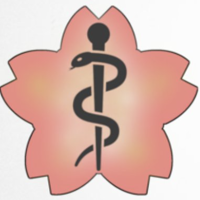|
|
|
|
|
|
|
|
|
|
|
|
|
|
|
|
|
|
|
|
|
|
|
|
|
|
|
|
|
""" |
|
BIOSSES computes similarity of biomedical sentences by utilizing WordNet as the |
|
general domain ontology and UMLS as the biomedical domain specific ontology. |
|
The original paper outlines the approaches with respect to using annotator |
|
score as golden standard. Source view will return all annotator score |
|
individually whereas the Bigbio view will return the mean of the annotator |
|
score. |
|
|
|
Note: The original files are Word documents, compressed using RAR. This data |
|
loader uses a version that privides the same data in text format. |
|
""" |
|
import datasets |
|
import pandas as pd |
|
|
|
from .bigbiohub import pairs_features |
|
from .bigbiohub import BigBioConfig |
|
from .bigbiohub import Tasks |
|
|
|
|
|
_DATASETNAME = "biosses" |
|
_DISPLAYNAME = "BIOSSES" |
|
|
|
_LANGUAGES = ["English"] |
|
_PUBMED = False |
|
_LOCAL = False |
|
_CITATION = """ |
|
@article{souganciouglu2017biosses, |
|
title={BIOSSES: a semantic sentence similarity estimation system for the biomedical domain}, |
|
author={Soğancıoğlu, Gizem, Hakime Öztürk, and Arzucan Özgür}, |
|
journal={Bioinformatics}, |
|
volume={33}, |
|
number={14}, |
|
pages={i49--i58}, |
|
year={2017}, |
|
publisher={Oxford University Press} |
|
} |
|
""" |
|
|
|
_DESCRIPTION = """ |
|
BIOSSES computes similarity of biomedical sentences by utilizing WordNet as the |
|
general domain ontology and UMLS as the biomedical domain specific ontology. |
|
The original paper outlines the approaches with respect to using annotator |
|
score as golden standard. Source view will return all annotator score |
|
individually whereas the Bigbio view will return the mean of the annotator |
|
score. |
|
""" |
|
|
|
_HOMEPAGE = "https://tabilab.cmpe.boun.edu.tr/BIOSSES/DataSet.html" |
|
|
|
_LICENSE = "GPL_3p0" |
|
|
|
_URLs = { |
|
"source": "https://huggingface.co/datasets/bigscience-biomedical/biosses/raw/main/annotation_pairs_scores.tsv", |
|
"bigbio_pairs": "https://huggingface.co/datasets/bigscience-biomedical/biosses/raw/main/annotation_pairs_scores.tsv", |
|
} |
|
|
|
_SUPPORTED_TASKS = [Tasks.SEMANTIC_SIMILARITY] |
|
_SOURCE_VERSION = "1.0.0" |
|
_BIGBIO_VERSION = "1.0.0" |
|
|
|
|
|
|
|
|
|
|
|
|
|
TRAIN_INDEXES = [ |
|
78, |
|
45, |
|
35, |
|
50, |
|
27, |
|
13, |
|
87, |
|
1, |
|
58, |
|
99, |
|
55, |
|
74, |
|
66, |
|
39, |
|
44, |
|
18, |
|
84, |
|
76, |
|
19, |
|
10, |
|
75, |
|
46, |
|
15, |
|
86, |
|
60, |
|
14, |
|
51, |
|
79, |
|
29, |
|
34, |
|
94, |
|
28, |
|
62, |
|
42, |
|
21, |
|
30, |
|
11, |
|
53, |
|
6, |
|
12, |
|
26, |
|
48, |
|
31, |
|
32, |
|
77, |
|
37, |
|
95, |
|
85, |
|
36, |
|
56, |
|
43, |
|
61, |
|
16, |
|
5, |
|
67, |
|
65, |
|
54, |
|
3, |
|
73, |
|
98, |
|
17, |
|
4, |
|
92, |
|
93, |
|
] |
|
DEV_INDEXES = [ |
|
88, |
|
82, |
|
8, |
|
63, |
|
47, |
|
68, |
|
40, |
|
90, |
|
100, |
|
24, |
|
41, |
|
91, |
|
80, |
|
9, |
|
72, |
|
2, |
|
] |
|
TEST_INDEXES = [ |
|
59, |
|
96, |
|
70, |
|
22, |
|
81, |
|
38, |
|
57, |
|
23, |
|
33, |
|
89, |
|
69, |
|
49, |
|
7, |
|
71, |
|
97, |
|
25, |
|
83, |
|
64, |
|
52, |
|
20, |
|
] |
|
|
|
|
|
class BiossesDataset(datasets.GeneratorBasedBuilder): |
|
"""BIOSSES : Biomedical Semantic Similarity Estimation System""" |
|
|
|
DEFAULT_CONFIG_NAME = "biosses_source" |
|
SOURCE_VERSION = datasets.Version(_SOURCE_VERSION) |
|
BIGBIO_VERSION = datasets.Version(_BIGBIO_VERSION) |
|
|
|
BUILDER_CONFIGS = [ |
|
BigBioConfig( |
|
name="biosses_source", |
|
version=SOURCE_VERSION, |
|
description="BIOSSES source schema", |
|
schema="source", |
|
subset_id="biosses", |
|
), |
|
BigBioConfig( |
|
name="biosses_bigbio_pairs", |
|
version=BIGBIO_VERSION, |
|
description="BIOSSES simplified BigBio schema", |
|
schema="bigbio_pairs", |
|
subset_id="biosses", |
|
), |
|
] |
|
|
|
def _info(self): |
|
|
|
if self.config.name == "biosses_source": |
|
features = datasets.Features( |
|
{ |
|
"id": datasets.Value("int64"), |
|
"document_id": datasets.Value("int64"), |
|
"text_1": datasets.Value("string"), |
|
"text_2": datasets.Value("string"), |
|
"annotator_a": datasets.Value("int64"), |
|
"annotator_b": datasets.Value("int64"), |
|
"annotator_c": datasets.Value("int64"), |
|
"annotator_d": datasets.Value("int64"), |
|
"annotator_e": datasets.Value("int64"), |
|
} |
|
) |
|
elif self.config.name == "biosses_bigbio_pairs": |
|
features = pairs_features |
|
|
|
return datasets.DatasetInfo( |
|
description=_DESCRIPTION, |
|
features=features, |
|
supervised_keys=None, |
|
homepage=_HOMEPAGE, |
|
license=str(_LICENSE), |
|
citation=_CITATION, |
|
) |
|
|
|
def _split_generators(self, dl_manager): |
|
|
|
my_urls = _URLs[self.config.schema] |
|
dl_dir = dl_manager.download_and_extract(my_urls) |
|
|
|
return [ |
|
datasets.SplitGenerator( |
|
name=datasets.Split.TRAIN, |
|
gen_kwargs={ |
|
"filepath": dl_dir, |
|
"split": "train", |
|
"indexes": TRAIN_INDEXES, |
|
}, |
|
), |
|
datasets.SplitGenerator( |
|
name=datasets.Split.VALIDATION, |
|
gen_kwargs={ |
|
"filepath": dl_dir, |
|
"split": "validation", |
|
"indexes": DEV_INDEXES, |
|
}, |
|
), |
|
datasets.SplitGenerator( |
|
name=datasets.Split.TEST, |
|
gen_kwargs={ |
|
"filepath": dl_dir, |
|
"split": "test", |
|
"indexes": TEST_INDEXES, |
|
}, |
|
), |
|
] |
|
|
|
def _generate_examples(self, filepath, split, indexes): |
|
|
|
df = pd.read_csv(filepath, sep="\t", encoding="utf-8") |
|
df = df[df["sentence_id"].isin(indexes)] |
|
|
|
if self.config.schema == "source": |
|
for uid, row in df.iterrows(): |
|
yield uid, { |
|
"id": uid, |
|
"document_id": row["sentence_id"], |
|
"text_1": row["sentence_1"], |
|
"text_2": row["sentence_2"], |
|
"annotator_a": row["annotator_a"], |
|
"annotator_b": row["annotator_b"], |
|
"annotator_c": row["annotator_c"], |
|
"annotator_d": row["annotator_d"], |
|
"annotator_e": row["annotator_e"], |
|
} |
|
|
|
elif self.config.schema == "bigbio_pairs": |
|
for uid, row in df.iterrows(): |
|
yield uid, { |
|
"id": uid, |
|
"document_id": row["sentence_id"], |
|
"text_1": row["sentence_1"], |
|
"text_2": row["sentence_2"], |
|
"label": str( |
|
( |
|
row["annotator_a"] |
|
+ row["annotator_b"] |
|
+ row["annotator_c"] |
|
+ row["annotator_d"] |
|
+ row["annotator_e"] |
|
) |
|
/ 5 |
|
), |
|
} |
|
|

